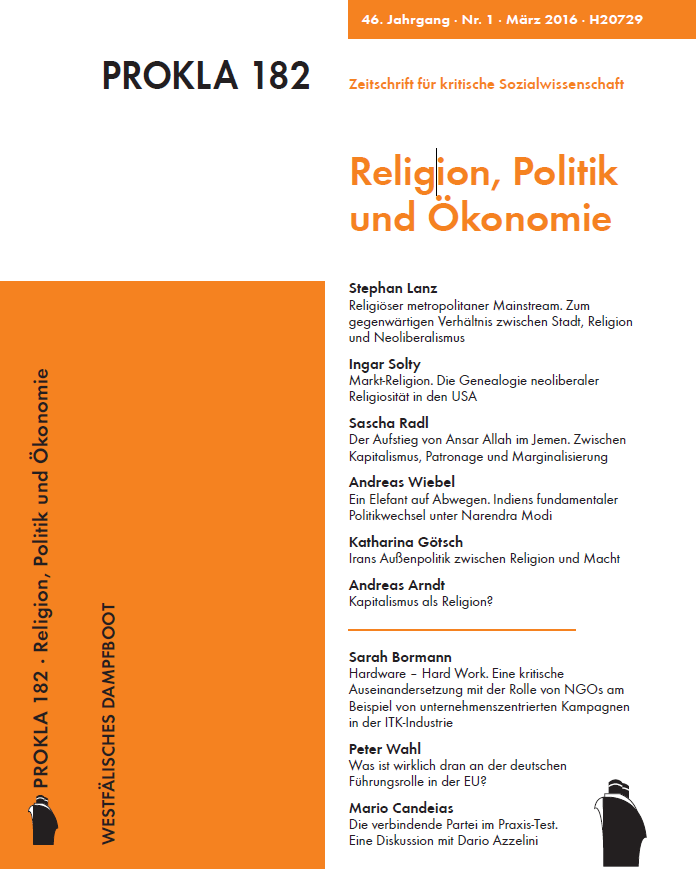Markt-Religion
Die Genealogie neoliberaler Religiosität in den USA
DOI:
https://doi.org/10.32387/prokla.v46i182.99Schlagworte:
Religion, Evangelikalismus, Ideologie, Gramsci, Althusser, USA, NeoliberalismusAbstract
The paper starts with a critique of the common notion of a fundamental divide between right-wing evangelicals and libertarians,“ i.e. „value“ and „business conservatives.” It also problematizes the underlying return of Lukacs’ian/Frankfurt School type of theories of „false consciousness,“ which fall behind the achievements of Gramscian and post-Althusserian theorizations of ideology and points towards the lack of a religious/Christian Democracy cleavage in the U.S. and, as a consequence, the specifically particularistic nature of the U.S. welfare state. The article then proceeds by linking the regional specifics of right-wing evangelicalism in the South and bordering Mid-West to U.S. capital’s domestic spatial fixes during the late 1960s and early 1970s. Finally, challenging right-wing populism in the United States would necessitate a break with the neoliberal anti-discrimination approach professed by the liberal Democrats.






